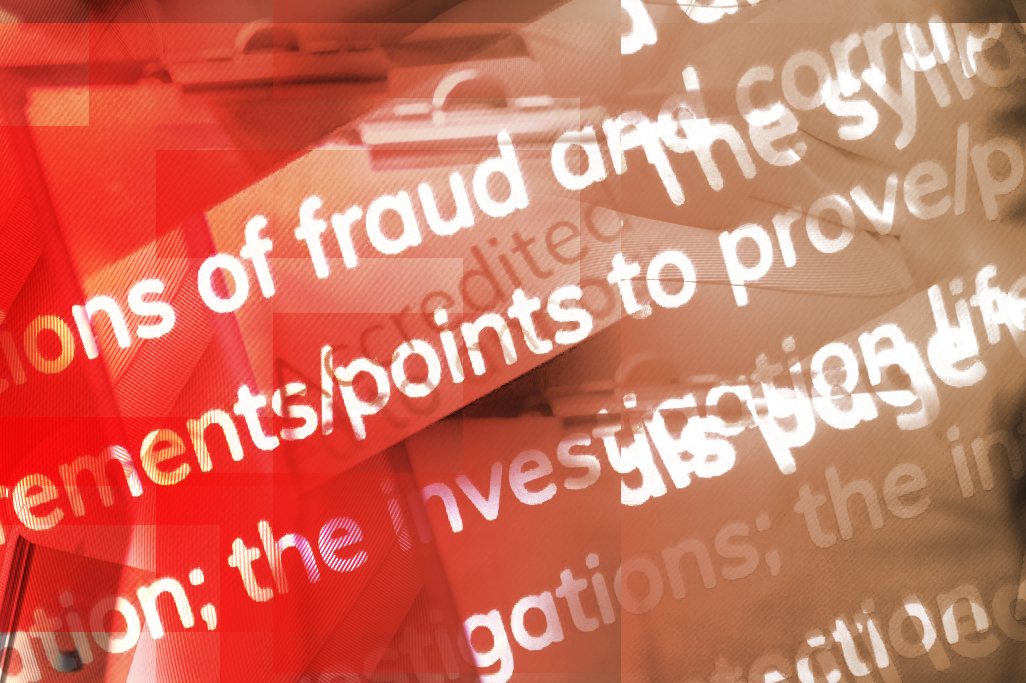Counter Fraud
Digital Document Fraud (DDF)



Quick links
Contact us
For further information on any of our products and services please contact us on:
+44(0) 7714 216126
enquiries@pdacounterfraud.co.uk
Introduction
The Digital Document Fraud (DDF) training course provides students with the skills to detect if a digital document, image, or file is genuine or if it has been fraudulently altered.
These skills are vital as most organisations now use digital documents, scans, and photographs of identity documents to verify the identity of the customer. Whilst this may be more convenient for the customer, digital documents can be easily tampered with, copied and faked, more so than hard copies – creating a greater risk of fraud.
The course is vocational in its nature and aims to give students ‘real world’ experience through the use of practical exercises, case studies and examples. The course takes students through the entire investigative process; from receiving a digital file, analysing it for manipulation, preserving it as evidence, and writing a professional report on their findings.
What the DDF Programme covers
The Digital Document Fraud training programme has been designed to give students the skills and techniques required to immediately start analysing and verifying documents, images and files in their investigations or verifications.
The course content covers:
- Methodologies to detect if photos and image files, such as photographs of passports, driving licenses, utility bills and ID cards, are genuine or if they have been manipulated.
- Methodologies to detect if document files, such as PDF and Word files, have been tampered with.
- Methodologies to retrieve hidden information on the creator and the sender of the files.
- As emails are the primary methodology for transferring documents, the course teaches students how to detect anomalies in emails which might indicate fraudulent activity.
- How to record and evidence findings in a professional manner.
- How to put together a professional report on the findings.
Upon completion of the course, students will be better equipped to detect application fraud, fake documents and manipulated images.
Who should attend?
This programme should be attended by anyone that needs to verify documents, deal with customer applications, or investigate fraud.
This includes:
- Counter Fraud and Trading Standards teams
- Customer verification, Know Your Customer (KYC) and Anti-Money Laundering (AML) staff,
- Housing associations, insurance, and conveyancing staff.
- Law enforcement and border agencies.
- Civilian or private investigators.
There are no technical or pre-course requirements, although students should be comfortable using computers.
How will you be taught?
The course can be delivered in a classroom or online through our learning platform.
Online
The online version of this course is delivered through our online learning platform. The training is interactive and consists of theory and practical exercises that give students the real-world grounding they need to immediately apply what they have learnt in their own fraud investigations or customer verifications.
Throughout the course, the student’s progress is monitored closely, and individual feedback is given regularly. The trainer is on hand throughout the course to provide assistance or further examples/material.
Classroom
The classroom course is taught over two days and is both practical and interactive. The course ends with a significant practical exercise in the afternoon of the second day, which takes students through a mock investigation.
To book onto the classroom course in the UK, please go to: https://academy.cifas.org.uk/courses/digital-document-fraud-classroom
If you are outside the UK and would like a classroom based course, please contact us at: enquiries@pdacounterfraud.co.uk
Assessment and Accreditation Criteria
The Digital Document Fraud course is assessed via four knowledge checks, three practical assessments and a final essay. During the course, students may also get feedback questions and exercises from the trainer to help with their learning.
Upon completion of the course, students will receive certification.
Duration and Student Numbers
The online course takes most students between 8 to 12 hours to complete. The course can be completed at the student’s own pace, with no time limits or deadlines.
The classroom course takes place over two days, with the practical exercise taking place on the afternoon of the second day.
Why choose PDA?
- We have a proven track record in the delivery of counter fraud learning programmes.
- The confidence of knowing that 60% of our business is from returning customers
- We work in partnership with all of our customers to provide effective learning solutions
- The learning is enhanced through the use of real-life case studies
- Students get the chance to assess their level of knowledge through the completion of practical exercises, tests, and written assignments.
- Our learning provides students with the practical skills and knowledge to effectively carry out their role.
- Full post Programme support is provided for students with direct access to trainers.
All prices are subject to VAT.
To find out more please contact Peter Darby Associates (PDA) on: enquiries@pdacounterfraud.co.uk
Contact us
PDA deliver their courses nationally and internationally, both online and at a number of UK based face-to-face training locations across the UK, including London, Manchester and throughout the Midlands.
For further information on any of our products and services please contact PDA between the hours of 8am to 8pm:
